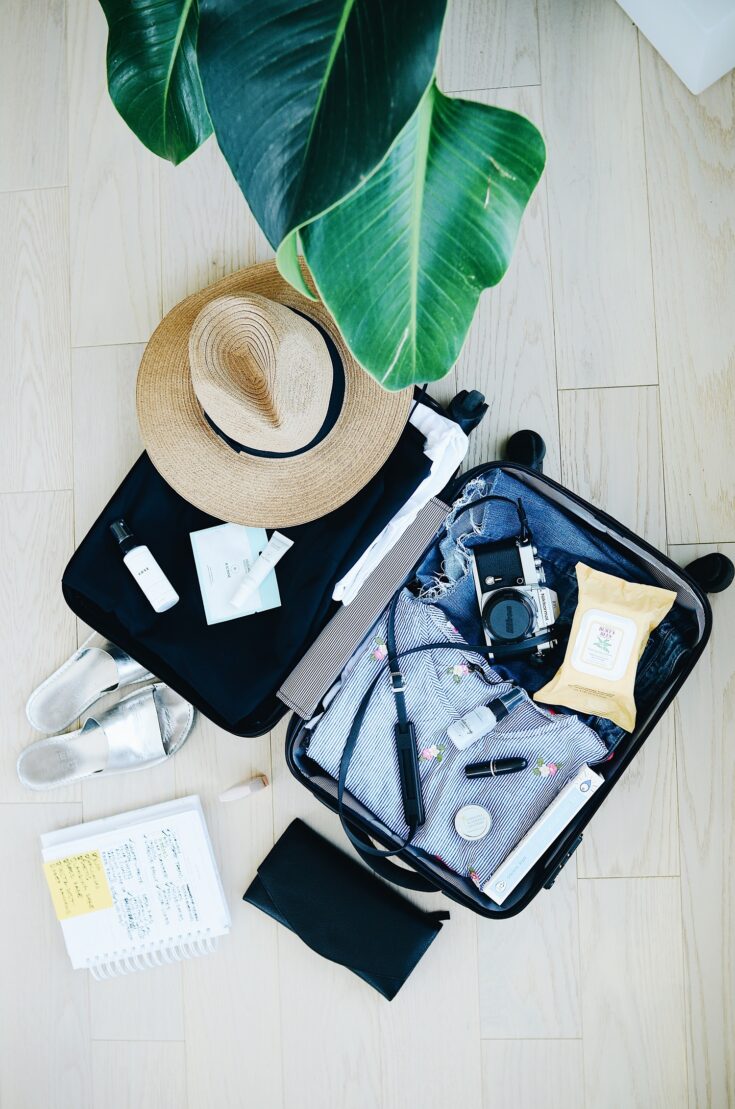Last updated: 30 August 2023
[ Ad ]
Back in January there was an uncontainable feeling of excitement when we planned our holidays for 2020. Booking trips far and wide, focusing on domestic travel within the UK as well as ticking off a few bucket list destinations we’d just never seemingly made the time for.
Then COVID-19 hit, and the world went topsy-turvy.

Eight months later, more than halfway into 2020, and I’m unable to get ‘really’ excited about anything. Why? Because there’s a part of me that thinks that the worst isn’t over, and plans will only get cancelled again and again, and I’ll be disappointed again, and again.
After slugging away for months on end, working from the confines of a small London flat, we both know we deserve some time to rest and recharge. I want nothing more than to sit back and enjoy the European sunshine, read a good book, or explore new and exciting places. But just like everything else in life, travelling isn’t without its downsides.

So far, 2020 has been the year of resilience. Testing our individual capacity to roll with the punches and get back up after being knocked down, time and time again. We’ve had plans and holidays cancelled left, right and centre; missing milestones, weddings, even birthdays have been all-but forgotten. This year, we both continue to ride the wave of book, cancel and rebook flights and holidays in the hope of regaining some of the control over our lives and returning to a normal, whatever that looks like.
While life isn’t all doom and gloom the prospect of travel is one I’m still on the fence about. Travel anxiety is a real issue, and there’s a number of things that are factoring into our decision to/not to travel in the immediate future including ever-changing government advice, getting stuck, and falling ill.
Getting sick abroad is one of my biggest concerns when travelling right now. No one wants to get sick when they travel. It’s difficult to enjoy your holiday if you’re not feeling well, but in 2020 a sniffle can escalate into a full-blown travel nightmare. Instead of exploring a new place, or trying exotic cuisines, you could be lying in bed in your hotel room, or worse, in hospital on a ventilator. Having adequate coverage by way of travel medical insurance certainly takes some of the stress out of the situation.
As a millennial traveller I always worry about our tech. Lost or stolen gear is a major inconvenience and can impact our livelihood as content creators. For travellers using a phone as a substitute for a guide book, a map, and a translator, losing it can mean that your trip goes from planned and seamless to a lot more spontaneous. Losing gear abroad is almost always an opportunistic crime so we recommend taking additional precautions like using a hotel safe, slash proof bags and concealed pockets to avoid becoming a victim.
If 2020 has taught me anything, it’s that conditions can change at a moment’s notice, and advice from government and regulatory bodies like the FCO, Smart Traveller and the WHO can change the circumstances of your travel from a dreamy beach holiday to a scramble for seats on the last flight out. We’ve seen that happy in July with the UK quickly changing their travel advice for Luxembourg, and Spain.

Travel delays and cancellations are another cause of travel anxiety right now. The benefits of travelling within the European Union usually offers a sense of security, and unity, and the knowledge that borders are unlikely to rapidly close leaving travellers stranded and far away from home, however the same can’t be said for the rest of the world. Australia has essentially closed its borders to most of the world right now, even its own citizens are having trouble getting home.
All of these are valid concerns for travel generally, but in 2020 I think it’s even more relevant. These are just three reasons why we don’t travel without travel insurance, I could write a 4000 word post on the rest!
As a result of the pandemic, many insurers amended the terms of coverage, meaning that even the best travel insurance policies don’t guarantee the coverage of all travel issues. Some will still cover medical expenses related to Covid-19, others don’t. Some cover delays and travel disruption, some don’t. Getting travel insurance is a personal choice, but we’ve always had it, and always will. It’s worth reading and understanding the fine print in your travel insurance policy before you leave home; knowing what you are, and aren’t, covered for because you can never really know what might happen while you’re away.
Hang in there you are doing a good job.
Thanks for the support Nev, hope you’re well in Aus!